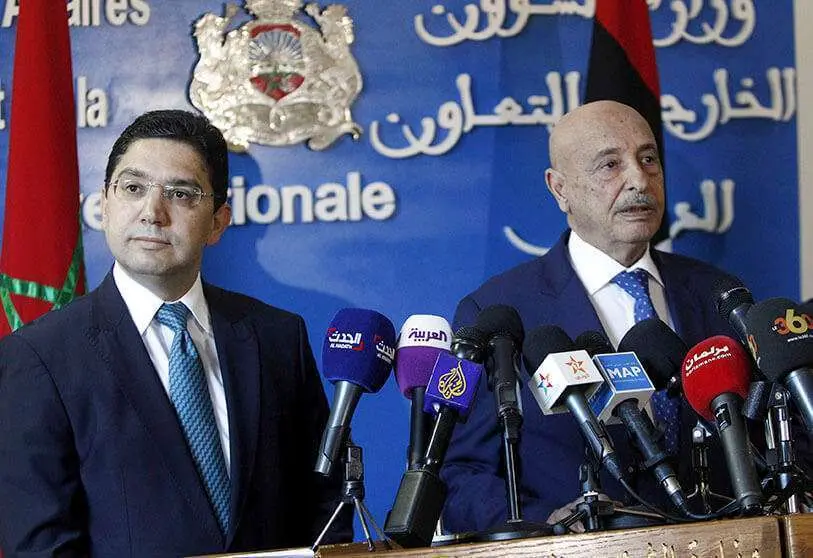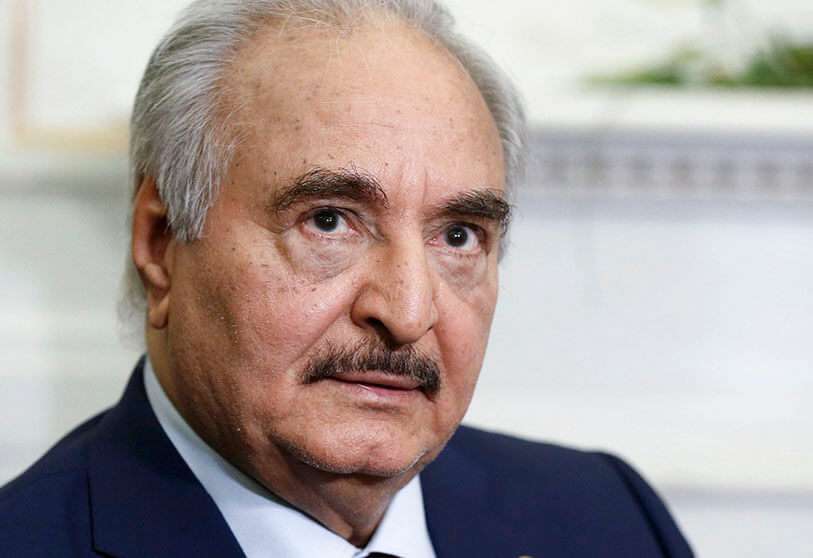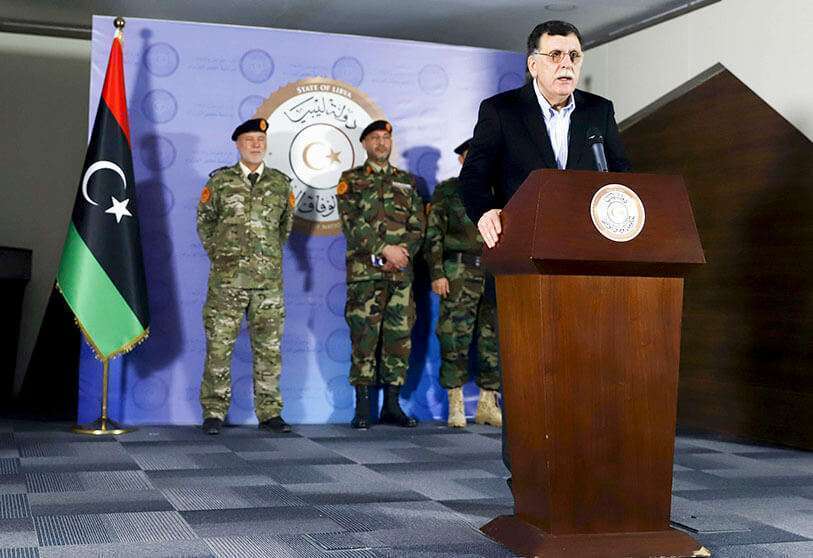Marruecos media en el conflicto libio

Rabat was the scene of several meetings between Moroccan authorities and representatives of the factions involved in the Libyan civil war to try to bring the two sides closer together.
The Moroccan Minister of Foreign Affairs, Nasser Bourita, held separate talks with the President of the Parliament of Tobruk, Aguila Saleh (representative of Marshal Khalifa Haftar, who controls the east of the Libyan country), and with the President of the Supreme Council of the Libyan State, Khaled al-Mashri, representative of the rival government of Tripoli, internationally recognised by the United Nations (UN) since 2016.
Bourita expressed Moroccan support for the political initiatives proposed by the Libyans themselves, while criticising foreign interference in the North African country and the multiplication of initiatives on this conflict "which constitute part of the problem". The Libyan conflict has become a game board with conflicting foreign interests on the part of countries that have aspirations on the North African country due to its geostrategic position and its resources, mainly oil.
The war clash in Libya has been developing since 2014 and confronts the Government of National Accord (GNA), led by Prime Minister Fayez Sarraj, against the Libyan National Army (LNA), commanded by Marshal Khalifa Haftar and associated with the other eastern Executive of Tobruk.

The GNA is supported by Qatar, Turkey and Italy, while the LNA is supported by powers such as France, Russia, Saudi Arabia, the United Arab Emirates and Egypt (the latter three major enemies of Qatar, on which they have maintained a firm embargo since 2017). The war was leaning in favor of Haftar's forces since the marshal launched his last offensive on the capital of Tripoli, a GNA bastion, on April 4 last year; but Turkey's intervention, with financial support from Qatar, reversed the situation. In November 2019, the President of the Eurasian nation, Recep Tayyip Erdogan, signed an agreement with Fayez Sarraj securing Turkish military support for the GNA, including sending paid mercenaries from the war in Syria (where Turkey is also present) and attached to groups linked in the past to terrorist formations such as Al-Qaeda or Daesh, and agreeing to the distribution of interesting economic zones in the Mediterranean arc (Erdogan's main objective in the face of gas and oil prospecting).
It is precisely in the last year that the fratricidal conflict has been totally transformed into an international and privatized armed confrontation, without armies, which are led by local militias and foreign mercenaries (including those contributed by Turkey and others, members of formations such as the Wagner Group, who work at the service of the Russian Kremlin).
After contacts on Moroccan territory, the president of the Tobruk Parliament defended his institution's latest initiative to reach a solution to the Libyan war, at the same time as he asked for the support of the Alaouite kingdom for this proposal.
Aguila Saleh's plan is to form a presidential council with equal representation between the three historic Libyan regions (Tripoli, Cyrenaica and Fezan), and to adopt a declaration for the upcoming legislative and presidential elections.
Furthermore, the initiative (launched in Cairo last June in the presence of Khalifa Haftar) also calls for a ceasefire and the withdrawal of foreign forces from Libya.
Saleh came to Rabat invited by the President of the Moroccan House of Representatives, Lahbib Malki, as the Libyan official himself explained.
For his part, and in a separate meeting with Bourita, the president of the Council of State pointed out that Saleh's initiative contains both positive and negative elements, adding that it could be a basis for an agreement between the two parties.
The two Libyan officials travelled to Rabat separately and, before meeting with Bourita, held meetings with the presidents of the two chambers of the Moroccan parliament, but did not meet at any time.
In his previous meeting with the President of the Moroccan Upper House, Hakim Benchemach, Al-Mashri showed his willingness to hold a dialogue with all the Libyan parties with the exception of Haftar, which is a major impediment to the Tripoli government.
In view of these movements, Libyan experts said that the visit of the Speaker of the House of Representatives serves to bring together the views of neighbouring countries in the Maghreb with a view to resolving the Libyan crisis, which has expanded following the direct Turkish military intervention together with the GNA.

The experts emphasized that understanding the nature of the problem is half of the solution to the crisis, which is getting worse every day, since it is the first of its causes that hides the GNA under the veil of "freedoms and peaceful transfer of power", with the underground presence of the Muslim Brotherhood, allies of Qatar and Turkey, as a tool for sowing discord.
The Libyan expert Abdullah al-Tarhouni, consulted by the media Al-Ain, pointed out that Aguila Saleh presented several proposals to solve the crisis far from the language of weapons, and that the Muslim Brotherhood (an organization considered terrorist by several Western countries) refuses to allow the Libyans to reach an agreement that includes them all in a fluid political process that guarantees all their rights.
Libya is now a real failed state which can move on to a worse scenario if the progress made by Turkey and the GNA towards enclaves such as Sirte continues, a red line marked by international actors such as neighbouring Egypt, which has already announced there would be an intervention with its army if security was threatened.










